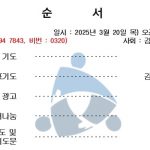April 25, 2016
THE CHARACTER OF LEADERSHIP
By Robert J. Tamasy
What is true leadership? Or to ask the question a different way, what are qualities of a good leader?
Countless books and articles that have been written about leaders and leadership. Speakers have made careers traveling from city to city, speaking at dinners, meetings and conferences, offering their opinions about effective leadership. So it would be hard to find a definitive answer on which everyone could agree.
We think of good leaders as people skilled at getting things done – or motivating other people to get things done. There are a variety of leadership styles. Some people are directive, issuing orders to their subordinates. Others excel at delegating authority (as well as responsibility) to their underlings. And still others prefer to be more directly involved, employing a hands-on approach to leading their staff.
But whenever we consider individuals who have distinguished themselves from many of their peers, leaders who have proved themselves worthy of being followed, a common denominator seems to emerge: Character. So whether we’re interviewing someone for a top executive position, seeking to fill a middle management role, or even evaluating candidates for elective office – this being a Presidential election year in the United States – character should be among the factors we take into account.
Of course, here again we could engage in a spirited debate about what comprises “character.” It might be good to consider the time-tested wisdom of the Bible and how it describes effective leaders. As is often the case, the book of Proverbs is an excellent place to start. Here are some examples:
Good leaders value wisdom. One benefit of modern technology has been limitless access to information and knowledge. It cannot, however, provide us with wisdom. This can be attained only by seeking to rightly apply what we know. “By wisdom a house is built, and through understanding it is established; through knowledge its rooms are filled with rare and beautiful treasures” (Proverbs 24:3-4).
Good leaders lean heavily on the counsel of trusted advisers. Knowing there are numerous ways of looking at a problem and many possible solutions, a good leader is not too proud to solicit the advice of trusted colleagues before proceeding in matters of critical importance. “Plans fail for lack of counsel, but with many advisers they succeed” (Proverbs 15:22). “For waging war you need guidance, and for victory many advisers” (Proverbs 24:6).
Good leaders approach their roles with humility. We live in an age when the loud, brash and outspoken tend to receive the most attention, but there is something strangely appealing about those that do not think too highly of themselves. “When pride comes, then comes disgrace, but with humility comes wisdom” (Proverbs 11:2). “Humility and the fear of the Lord bring wealth and honor and life” (Proverbs 22:4). “A man’s pride brings him low, but a man of lowly spirit gains honor” (Proverbs 29:23).
Good leaders speak with discretion. The spoken word can be used to uplift – or to destroy. Leaders measure their words for best effect. “When words are many, sin is not absent, but he who holds his tongue is wise” (Proverbs 10:19). “The lips of the righteous say what is fitting, but the mouth of the wicked only what is perverse” (Proverbs 10:32).
© 2016. Robert J. Tamasy is vice president of communications for Leaders Legacy, Inc., a non-profit based in Atlanta, Georgia, U.S.A. Bob has written Business At Its Best: Timeless Wisdom from Proverbs for Today’s Workplace; Tufting Legacies; and coauthored with David A. Stoddard, The Heart of Mentoring, as well as other books. His biweekly blog is: www.bobtamasy.blogspot.com.
CBMC INTERNATIONAL: Jim Firnstahl, President
2850 N. Swan Road, Suite 160 ▪ Tucson, Arizona 85712 ▪ U.S.A.
TEL.: 520-334-1114 ▪ E-MAIL: mmanna@cbmcint.org
Web site: www.cbmcint.org Please direct any requests or change of address to: jmarple@cbmcint.org
Reflection/Discussion Questions
- How would you define “character,” especially as it applies to leadership?
- Do you agree that strong character should be a consideration in the selection of leaders, regardless of the sphere in which they are expected to lead? Why or why not?
- What is the state of character among many of the leaders you observe today, whether where you work, in your community, or even those who are celebrated by the media? Do you see many men and women you consider to be of high, strong character?
- Which of the character traits that have been cited from Proverbs stand out in particular for you? Can you think of any other traits that might be equally important?
NOTE: If you have a Bible and would like to read more about this subject, consider the following passages:
Proverbs 1:7, 2:6, 3:13-15, 10:17, 12:6,15,18,23, 13:3, 14:29, 15:4, 19:20, 20:3, 28:20





